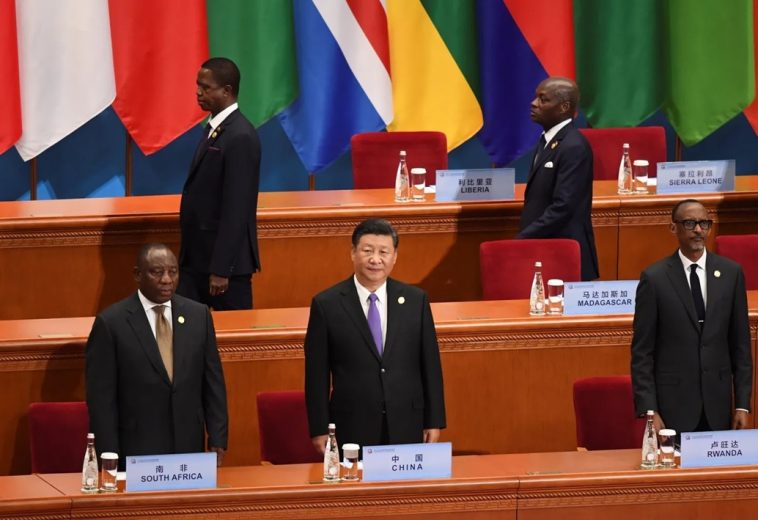What if the solution to Africa’s waste crisis also held the key to its economic transformation? Across the continent, a quiet revolution is underway—one that’s turning rubbish into resources, pollution into profit, and challenges into opportunities. Africa is embracing a new era of sustainability by turning waste into wealth. The continent is home to some of the world’s most innovative waste management solutions, which not only reduce waste but also create jobs, generate income, and promote economic growth. From recycling and composting to energy generation and sustainable agriculture, Africa is leading the way in transforming waste into a valuable resource.
The continent faces significant waste management challenges. Many countries struggle to dispose of waste safely and sustainably. The lack of adequate infrastructure, coupled with rapid urbanisation and population growth, has led to overflowing landfills, pollution, and environmental degradation. However, these challenges have also opened the door to innovation and entrepreneurship, with many Africans developing creative, home-grown solutions to address the waste management crisis.
READ ALSO: Addressing Waste Crisis in Africa Through Recycling
Recycling and Composting: A Growing Industry in Africa
Recycling and composting are becoming increasingly prominent across Africa, with several countries investing in infrastructure and public initiatives to promote waste reduction. In South Africa, for instance, a national waste management strategy sets out ambitious recycling and composting targets. The country boasts a thriving recycling sector, with companies such as Collect-a-Can and Nampak Recycling processing millions of tonnes of waste annually.
East African nations like Kenya and Tanzania are also advancing steadily. Kenya’s government has banned single-use plastic bags, while companies like EcoPost convert plastic waste into durable furniture and construction materials. In Tanzania, the national recycling programme focuses on composting and organic waste, contributing to a circular economy.
Energy generation: Turning waste into power
Africa is harnessing waste to generate energy, with multiple countries investing in waste-to-energy (WTE) initiatives. In Nigeria, the government, in collaboration with international partners, has launched a project to convert municipal waste into electricity—reducing reliance on fossil fuels while promoting cleaner energy sources.
In South Africa, private-sector players such as Veolia and Waste-Tech are leading the charge. Veolia’s Johannesburg facility transforms waste into electricity and provides heat to nearby industries, while Waste-Tech’s anaerobic digestion plant in Cape Town processes food waste to produce biogas for power generation.
Sustainable Agriculture: Using Waste as Fertiliser
Agriculture across Africa is increasingly adopting sustainable practices, including the use of organic waste as fertiliser. In Ghana, the government’s push for organic farming encourages composting to improve soil health and crop productivity.
Similarly, Ethiopia’s government, with support from international development partners, promotes sustainable agriculture by integrating organic waste into farming. These programmes not only support environmental health but also contribute to food security and rural development.
Economic, Environmental and Social Benefits
The waste-to-wealth movement has the potential to significantly boost Africa’s GDP through several avenues:
Economic Growth
Job Creation: Waste management and recycling initiatives are spawning new employment opportunities, helping tackle unemployment and foster economic inclusion.
Increased Revenue: By transforming waste into marketable products, businesses and governments are unlocking new revenue streams.
Cost Savings: Reducing the volume of waste going to landfill cuts disposal costs for municipalities and businesses alike.
Environmental Gains
Pollution Reduction: Diverting waste from landfills and oceans helps curb pollution, safeguarding ecosystems and public health.
Conservation of Resources: Recycling lessens the demand for virgin raw materials, reducing extraction and associated environmental damage.
Climate Action: Proper waste processing—especially through composting and WTE—can limit greenhouse gas emissions, notably methane from landfills.
Social Impact
Public Health: Better waste management reduces disease vectors and contributes to cleaner living conditions.
Community Engagement: Many initiatives encourage local involvement, fostering environmental stewardship at the grassroots.
Education and Awareness: Waste-to-wealth projects often include awareness campaigns that inspire behavioural change and cultivate a culture of sustainability.
Contribution to GDP and Beyond
Waste-to-wealth initiatives contribute both directly and indirectly to GDP. They generate employment, stimulate new industries, and reduce operational costs. Moreover, their economic benefits tend to ripple outward, supporting growth in complementary sectors such as logistics, manufacturing, and green technology.
Looking Ahead: A Positive Outlook for Africa
The outlook for waste management in Africa is promising. As economies develop and environmental pressures mount, investment in recycling, composting, WTE technologies, and sustainable agriculture is likely to intensify.
Over the next decade, Africa is poised to see:
Growth in circular economy ventures
Expansion of WTE projects in urban centres
Broader adoption of organic fertiliser use in farming
Africa’s innovative approach is not only transforming its waste landscape but also offering a powerful model for sustainable development. As global waste challenges persist, the continent’s strides in turning waste into wealth serve as an inspiration to the rest of the world.




